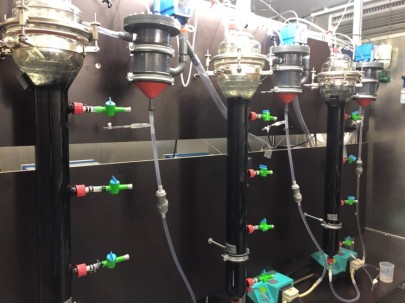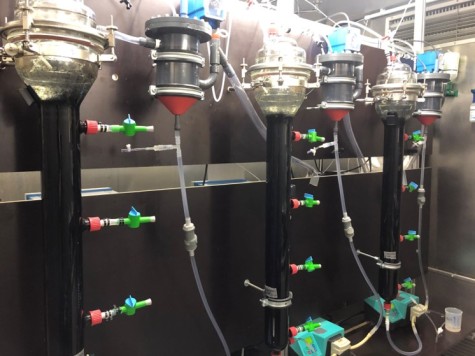FrüWAn
Anaerobic reactors have become established worldwide for the (pre-)treatment of organically contaminated and highly concentrated industrial wastewater due to their wide range of possible applications. Process combinations and plant-related operating faults have been largely resolved. Nevertheless, operational faults and performance-reducing effects occur in practice, which can be attributed to reduced activity of the anaerobic biocenosis and disintegration of the granulated anaerobic sludge. The investigations planned in the research project “FrüWAn” focus on the inhibiting and performance-reducing effects of industrial chemicals and increased salt concentrations on the anaerobically granulated biomass under defined operating conditions in laboratory-scale EGSB reactors (“Expanded Granular Sludge Bed”). The project builds on the results of the preceding project “DevlanGra”, which was also funded by the Willy Hager-Foundation. In long-term operation, the effects of continuous exposure to inhibitors on the bacterial population will be analyzed. The granulated sludge will be continuously analyzed for changes in its chemical-physical composition, its kinetic properties (specific methane activity) and by means of microbial investigations (gene probe technology). In addition, the operating data (laboratory parameters and online data) of the three EGSB reactors are evaluated and analyzed for correlations with the sludge parameters. The aim of the research project is the development of an early warning system for plant operation and the testing of measures to stabilize operations.
Funding:
- Willy-Hager-Stiftung, Stuttgart
Project Management:
Project Processing:






